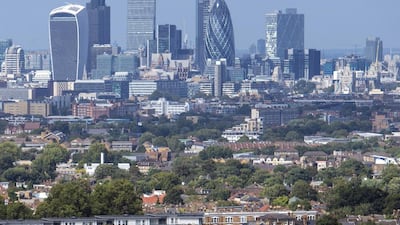Larger economies must prioritise the allocation of all necessary resources to produce Covid-19 vaccines and help push out global inoculation programmes that are essential to saving lives, preserving incomes and ensuring a sustained economic recovery.
The cost of resources needed to provide vaccines to lower-income countries is small compared with the benefits all economies can reap through a “stronger and faster” economic bounce back, the Organisation for Economic Co-operation and Development (OECD) said in its interim economic outlook on Tuesday.
The International Monetary Fund estimates faster progress on ending the health crisis will raise global income cumulatively by $9 trillion over 2020-25, benefitting all countries
"We need to go much faster and we need to do much better," Laurence Boone, OECD chief economist, said. “Faster progress in vaccine deployment in all countries would enable restrictions to be lifted more quickly and enhance confidence and spending."
"Sizeable risks [still] remain" for global growth and slower progress in rolling out vaccines and the emergence of new virus variants that are resistant to some jabs will result in a "weaker recovery, larger job losses and more business failures, she warned.
The Paris-based OECD said the rebound from the pandemic has been faster than expected on the back of vaccine breakthroughs and mass inoculation programmes. It expects the global economy to expand 5.6 per cent this year and 4 per cent in 2022. The IMF forecasts the global economy expanding 5.5 per cent this year and 4.2 per cent in 2022.
Despite the improved global outlook, output and incomes in many countries will remain below the level expected prior to the pandemic at the end of 2022, the 37-member OECD said.
“Prospects for an eventual path out of the crisis have improved ... but there are signs of increasing divergence in activity developments across sectors and economies,” Ms Boone said.
Economic activity accelerated in the fourth quarter of 2020, despite new virus outbreaks in many countries and tighter containment measures across Europe, Asia and North America. The rebound was relatively fast in several large emerging-market economies, as activity moved above pre-pandemic levels in China, India and Turkey.
Output shortfalls remained mild in Asia-Pacific economies, including Australia, Japan and Korea.
In the US, strong fiscal support should strengthen demand substantially and enable a stronger recovery from the pandemic, with beneficial spillovers for other economies, particularly Canada and Mexico, the OECD said. An additional $1.9tn of US fiscal stimulus may boost the country’s GDP growth by over 3 percentage points this year, it said.
In contrast, European economies are expected to see a gradual bounce back, reflecting continued pandemic containment measures in the early part of 2021 and more limited fiscal support.
"What we are saying, is that Europe is not doing well enough in vaccination. They need to do more and do it quickly," Ms Boone said.
"They need to distribute [the vaccine] a lot better ... open vaccination centres and bring vaccines to those who need it."
The acceleration in vaccine deployment should help build economic momentum, particularly in the UK, she added.
The slow pace of vaccine deployment and limited scope for additional policy support is likely to moderate the recovery of emerging-market economies in Latin America and Africa, the OECD said.
The coronavirus pandemic has infected about 118 million, according to Worldometer, which tracks the pandemic, but the number of new cases has begun to decrease gradually, indicating the efficacy of vaccines.
The OECD said faster progress in deploying vaccines and a decline in household savings by 1.5 per cent in the second quarter of 2021 will provide tailwinds to an economic recovery. Global GDP growth under such a scenario would rise by 1.5 per cent in 2021 and 1 per cent in 2022, taking it to 7 per cent and 5 per cent respectively.
However, a slower-than-anticipated rollout of vaccines across the globe and pandemic restrictions affecting economic activity pose a downside risk, which could push global growth down.
The current “very accommodative monetary policy stance” by central banks should be maintained, the OECD said. Economies should also allow temporary overshooting of headline inflation provided underlying price pressures remain well contained.
Continued income support for households and companies is warranted until vaccinations allow a significant easing of restraints on face-to-face activities, it said. Such support should be “refocused to support people and help companies with grants and equity rather than debt”.
Fiscal and monetary policy support should continue to underpin demand, Ms Boone said. Reduced uncertainty, improved confidence and a better labour market outlook will eventually allow households to reduce saving gradually.
The upturn in global industrial production and return of global merchandise trade to pre-pandemic levels should also help strengthen the outlook of economies integrated into global supply chains.


